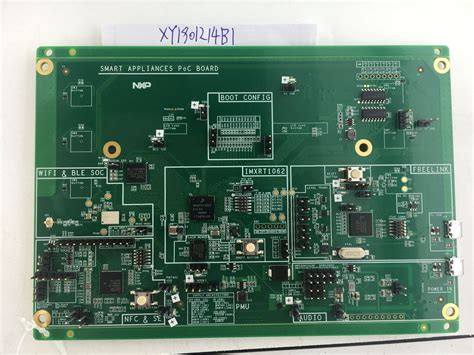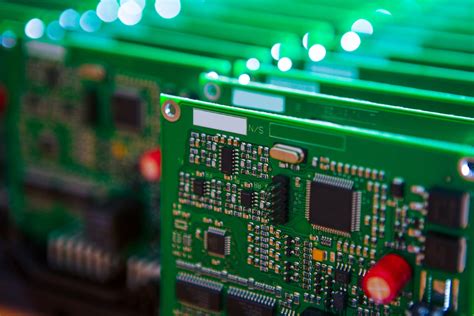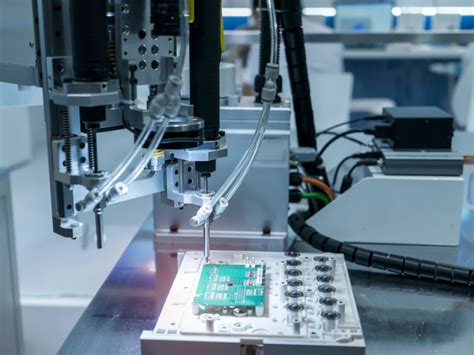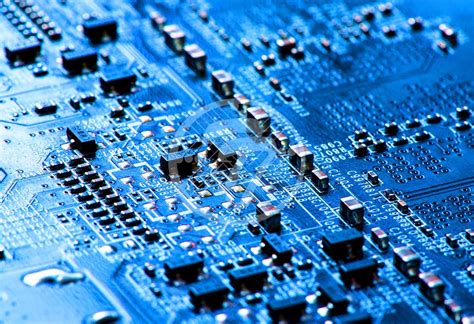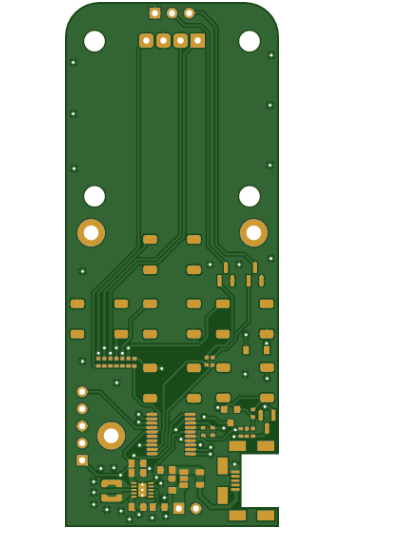Choosing the Right PCB Assembly Contract Manufacturer for Your Needs
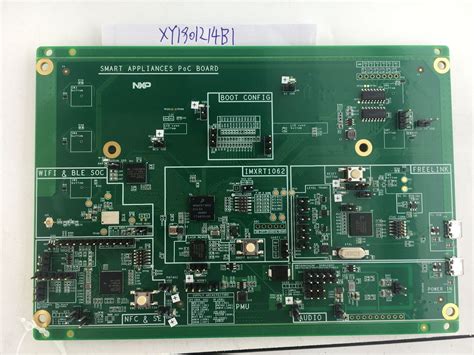
Key Takeaways
When navigating the landscape of pcb assembly and selecting a suitable pcb assembly contract manufacturer, it is essential to prioritize several key factors to ensure that your requirements are met with precision. First and foremost, the expertise of the manufacturer in pcba is crucial; their knowledge in handling various technologies and complex designs can significantly impact the efficiency and effectiveness of the final product.
Additionally, emphasizing quality standards is vital. Look for manufacturers who comply with recognized industry standards and certifications, as this can serve as a benchmark for their operational capabilities. It is often helpful to assess past projects and customer feedback, which can provide insights into the manufacturer’s reliability.
Moreover, balancing cost-effectiveness with quality will enable you to make informed decisions. It’s imperative to remember that the cheapest option may not always yield the best results in terms of durability and performance. Understanding your budget constraints while also aiming for high standards can enhance your product’s overall value.
Lastly, effective communication plays an indispensable role in developing successful partnerships. Establishing clear channels for sharing your expectations will facilitate a smoother workflow and significantly reduce potential misunderstandings. > “Engaging in proactive dialogue with your chosen manufacturer not only enhances collaboration but also fosters innovation during the assembly process.”
Selecting the right pcb assembly contract manufacturer is a multifaceted decision that requires careful consideration of these factors to achieve optimal results tailored to your unique needs.
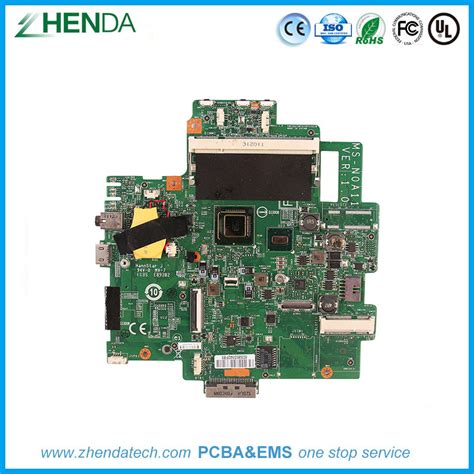
Choosing the Right PCB Assembly Contract Manufacturer: A Comprehensive Guide
Selecting the ideal pcb assembly contract manufacturer is crucial for the success of your project. The first step is to understand the importance of expertise in pcba. A manufacturer with extensive experience in pcb assembly can ensure better production quality, reliability, and adherence to standards. This expertise often indicates familiarity with various production techniques, enabling them to handle complex designs effectively.
Another essential element is evaluating quality standards that the manufacturer adheres to. Many manufacturers comply with industry certifications like ISO 9001 and IPC-A-610, which demonstrate their commitment to quality. When examining a potential partner, it is beneficial to request documentation of their quality control processes and recent inspection results.
Cost-effectiveness plays a significant role in decision-making as well. However, finding a balance between cost and quality is vital; opting for the lowest bid could compromise your product’s integrity. It’s advisable to assess each manufacturer’s pricing structure alongside their offerings to ensure you receive optimal value without sacrificing essential quality.
The selection process should also include key factors such as state-of-the-art technology and capabilities that align with your project’s demands. For instance, if your product requires fine-pitch components or high-voltage designs, ensure that the manufacturer possesses the needed machinery and technical know-how.
Lastly, nurturing a solid line of communication throughout the partnership can set the foundation for successful collaboration. Clear communication helps address potential issues early on and fosters trust between you and your chosen pcb assembly contract manufacturer.
| Factors | Considerations |
|---|---|
| Expertise | Experience level, familiarity with complex designs |
| Quality Standards | Industry certifications (ISO 9001, IPC-A-610) |
| Cost-Effectiveness | Balance between cost and quality |
| Technology | Availability of advanced machinery relevant to project needs |
| Communication | Open channels for addressing concerns |
In conclusion, carefully evaluating these critical factors ensures that you select the right pcb assembly contract manufacturer tailored specifically to your requirements.
Understanding the Importance of Expertise in PCB Assembly
Selecting the right PCB assembly contract manufacturer is crucial for ensuring the success of your project. One of the most significant factors to consider is the expertise that a manufacturer possesses in the realm of PCBA (Printed Circuit Board Assembly). Specialized knowledge in PCB assembly processes, technologies, and industry standards can greatly influence the overall quality and reliability of your final product. A manufacturer well-versed in various techniques—from traditional wave soldering to modern surface mount technology (SMT)—will not only enhance production efficiency but also minimize potential errors during assembly. Additionally, their experience with different materials and components can lead to innovative solutions tailored to your specific needs. By prioritizing manufacturers with a proven track record and strong technical capabilities, you can ensure that your PCBA process is handled by professionals who understand the intricacies involved, ultimately leading to superior performance and customer satisfaction. Thus, investing time in evaluating the expertise of potential partners is essential for achieving optimal outcomes in your projects.
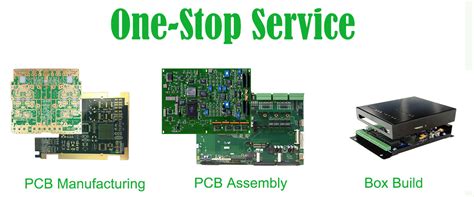
Evaluating Quality Standards in PCB Manufacturing
When selecting a pcb assembly contract manufacturer, one of the most critical aspects to evaluate is their quality standards. The quality of the printed circuit boards (PCBs) produced can significantly impact the overall performance and reliability of your finished products. A reputable pcba manufacturer should adhere to international quality certifications such as ISO 9001, IPC standards, and other relevant industry benchmarks. These certifications not only demonstrate a commitment to quality but also ensure that the processes in place are robust and capable of delivering consistent results.
Furthermore, it’s essential to assess the manufacturer’s quality control processes. This involves examining their inspection techniques, testing methodologies, and defect management systems. Manufacturers who invest in advanced technologies such as Automated Optical Inspection (AOI) and X-ray inspection can better guarantee that each PCB assembly meets high-performance criteria. Additionally, understanding how a manufacturer handles issues such as component sourcing and adherence to tolerances is vital. By prioritizing quality standards, you can partner with a pcb assembly provider that not only meets your requirements but also adds value through their dedication to excellence. As a result, choosing a manufacturer with stringent quality practices can lead to enhanced product reliability and customer satisfaction, ensuring that your business achieves long-term success in an increasingly competitive market.
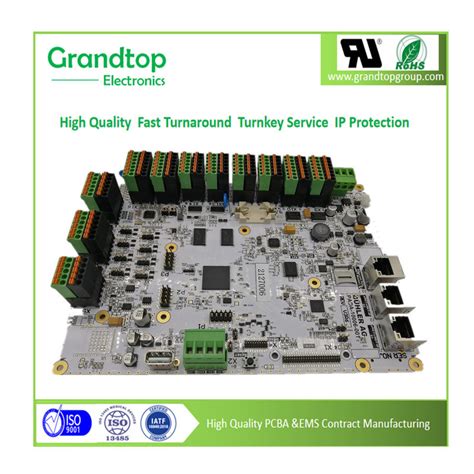
Cost-Effectiveness vs. Quality: Finding the Balance
When selecting a pcb assembly contract manufacturer, one of the most critical considerations is the balance between cost-effectiveness and quality. While it may be tempting to opt for the lowest price available, this could come at the expense of subpar pcba that may not meet industry standards or client expectations. To achieve optimal results, it’s essential to evaluate how potential manufacturers maintain their quality standards while also providing competitive pricing. A thorough assessment of a manufacturer’s past projects, technological capabilities, and customer reviews can provide insights into their commitment to delivering robust and reliable products. Furthermore, engaging in transparent discussions about both budget constraints and quality requirements can lead to better alignment between your organization and the contract manufacturer. Ultimately, finding a partner that understands the importance of both value for money and adherence to rigorous quality standards will pave the way for a successful collaboration in pcb assembly projects.
Key Factors to Consider When Choosing a Manufacturer
When selecting a pcb assembly contract manufacturer, several critical factors should be weighed to ensure the alignment of the manufacturer’s capabilities with your project’s specific requirements. First and foremost, expertise in pcba is paramount; manufacturers with a proven track record in the industry are better equipped to handle complexities and deliver quality results. Next, evaluating quality standards is essential; look for manufacturers that adhere to industry certifications, as these are indicators of their commitment to providing reliable products. Cost-effectiveness also plays a vital role in decision-making; it is crucial to find a balance between price and quality, as opting for the lowest bid can sometimes lead to compromised standards. Furthermore, consider the manufacturer’s production capabilities and technologies employed; advanced equipment can significantly enhance precision and efficiency in the assembly process. Lastly, an open line of communication throughout the project will improve collaboration and help mitigate any potential misunderstandings. Considering these factors will pave the way for establishing a successful partnership with your chosen pcb assembly contract manufacturer.
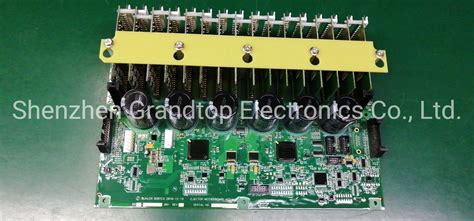
The Role of Communication in Successful Partnerships
Effective communication is vital when working with a pcb assembly contract manufacturer. This partnership relies on transparent dialogue to ensure that both parties understand the project requirements, timelines, and potential challenges. Regular updates and feedback facilitate the smooth progress of the pcba process, helping to align expectations and enhance collaboration. Moreover, establishing a strong communication framework—through tools such as project management software, video calls, or quick messaging platforms—can significantly reduce misunderstandings that may arise during assembly stages. Additionally, being open about modifications or issues fosters an environment of trust, where both sides can promptly address concerns and pivot as necessary without jeopardizing the overall project timeline. Suppliers who prioritize clear and consistent communication often exhibit better responsiveness to changes and are more likely to provide high-quality results throughout the pcb assembly process. In essence, nurturing a culture of effective communication not only fortifies relationships but also enhances the overall efficiency and success of partnerships in delivering satisfactory pcba outcomes.
Assessing Manufacturer Capabilities and Technologies
When selecting a pcb assembly contract manufacturer, it is essential to thoroughly assess their capabilities and the technologies they employ. Ensuring that the manufacturer possesses a deep understanding of various pcba processes is vital for achieving desired outcomes. Start by examining their areas of specialization: do they have expertise in surface mount technology (SMT) or through-hole technology? The diversity and sophistication of their equipment also play a critical role; state-of-the-art machinery can enhance production efficiency and reliability. Moreover, evaluating their quality assurance processes is crucial. Manufacturers that adhere to strict quality standards, such as ISO certifications, are more likely to deliver pcba solutions that meet your specifications. Understanding their operational flexibility is another consideration; can they accommodate changes in production volume or adapt to the specific requirements of your project? By assessing these elements, you can ensure that you partner with a manufacturer who not only meets your current needs but is also capable of supporting future growth in your pcb assembly projects.
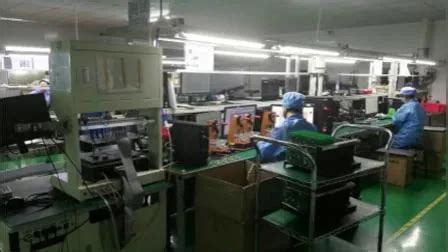
Navigating Contracts and Agreements for PCB Assembly Services
When engaging with a pcb assembly contract manufacturer, understanding the intricacies of contracts and agreements is crucial for maintaining a smooth working relationship. A well-structured contract should clearly outline the scope of services, including the details pertaining to pcba, timelines, costs, and quality expectations. Additionally, it’s essential to include clauses that address potential risks and liabilities to protect both parties. Transparency in communication about changes in design or volume can also prevent misunderstandings later on. Moreover, reviewing the terms regarding intellectual property rights is critical, as you want to ensure that your proprietary designs remain protected while being manufactured. Understanding payment terms and milestones linked to project deliverables can enhance trust and foster a productive relationship with your manufacturer. Therefore, diligence in negotiating these agreements not only safeguards your interests but also lays the foundation for mutual success in your pcb assembly projects. By establishing clear expectations from the outset, you facilitate an environment conducive to achieving optimal results while maximizing quality and efficiency.
Conclusion
In summary, selecting the right pcb assembly contract manufacturer is a crucial step in ensuring the success of your project. It requires careful consideration of various factors that align with your specific requirements. To begin with, the caliber of expertise in pcba is vital; experienced manufacturers often demonstrate superior problem-solving skills and advanced technical capabilities, which can significantly influence the outcome of your product. Additionally, evaluating quality standards is paramount. Manufacturers adhering to internationally recognized standards provide reassurances about their commitment to excellence and consistency in their processes. It’s also essential to strike a balance between cost-effectiveness and quality. While lower prices may appear appealing, they shouldn’t come at the expense of superior components or craftsmanship. As you assess potential partners, it’s wise to establish clear lines of communication to ensure a harmonious working relationship that fosters mutual understanding and timely updates throughout the manufacturing process. Ultimately, investing time in thorough evaluation and thoughtful dialogue will pave the way for successful collaborations that deliver high-quality pcb assembly results tailored to your needs.
FAQs
What is the importance of choosing a reliable PCB assembly contract manufacturer?
Selecting a reliable PCB assembly contract manufacturer is crucial for ensuring the quality of your product. A trustworthy partner can enhance production efficiency and reduce errors, leading to successful project outcomes.
How do I evaluate the expertise of a PCB assembly manufacturer?
Assessing a manufacturer’s expertise can involve reviewing their experience, certifications, and previous projects. Look for companies that have a proven track record in handling PCBA for similar applications or industries.
What quality standards should I look for in PCB assembly?
Key quality standards include compliance with IPC-A-610 and IPC-7711/7721 standards. These help ensure proper workmanship and reliability of your PCB assembly, guaranteeing optimal performance in final products.
How can I balance cost-effectiveness with quality in PCB manufacturing?
Finding the right balance involves performing thorough market research and comparing quotes from multiple manufacturers. Ensure that lower costs do not compromise the essential quality you require from your PCBA.
What key factors should I consider when choosing a PCB manufacturer?
Consider factors such as capabilities, technology used, turnaround time, after-sales support, and customer feedback. Assessing these elements will help you align your needs with what prospective manufacturers offer.
How important is communication in the partnership with my PCB assembly provider?
Effective communication is critical for a successful collaboration. Clear dialogue ensures that both parties are aligned on project specifications, timelines, and any adjustments made during production phases.

